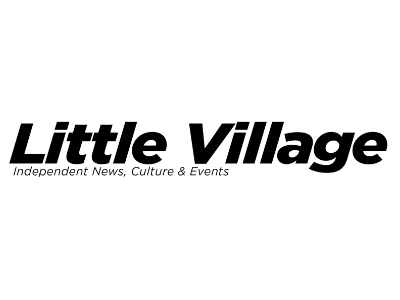This story originally appeared in LV Daily, Little Village’s Monday-Friday email newsletter. Sign up to have it delivered for free to your inbox.

On Tuesday, the ACLU of Iowa sent letters to the city councils of Dyersville, Pella and Waukee advising them to revise their ordinances restricting drag shows because they are unconstitutional. All three cities have ordinances that “include language and references to female and male impersonators as ‘adult entertainment’,” ACLU of Iowa staff attorney Shefali Aurora explained during a Tuesday news conference.
According to the ACLU’s analysis, the ordinances are so broadly written they could apply to any performer not wearing clothing traditionally associated with their gender, and even productions of plays like Shakespeare’s Twelfth Night, in which a female character disguises herself as a man.
“These ordinances are unconstitutional for three different reasons,” Aurora said. “First, they do violate free speech as an unjustified content restriction. And second, they are overbroad because they include all drag shows, regardless of whether or not they feature erotic or sexually explicit content, under the umbrella of adult entertainment. And third, they violate equal protection in targeting the LGBTQ community.”
Drag shows have long been closely closely associated with the LGBTQ community, and as political attacks on the rights of LGBTQ Americans and anti-transgender bigotry have become increasingly prominent among movement conservative in recent years, protests against performances featuring drag performers and attempts by Republican lawmakers in states around the country to restrict them have proliferated.
Earlier this month, a federal judge struck down a new Tennessee law making it a crime to bring a minor to an event featuring a drag performance. The judge found the law “both unconstitutionally vague and substantially overbroad.” Sandy Salmon, a Republican who represents the Janesville area in the Iowa Senate, copied the text of the Tennessee ban for a bill she introduced in February. That bill, like the original in Tennessee, would have made it a crime for an adult to bring anyone under 18 to any show featuring a “performer who exhibits a gender identity that is different than the performers’ gender assigned at birth through the use of clothing, makeup, accessories, or other gender signifiers.” Salmon’s bill died without receiving a committee hearing this year.
All three of the ordinances in question predate the current political hostility to drag. Still, according to Aurora, they “perpetuate a history of hostility toward the LGBTQ community.”
The ACLU first started examining local ordinances restricting drag shows following a 2021 incident in the small city of Eagle Grove in Wright County.
In October 2021, Doña Martha’s Office, a recently opened bar in Eagle Grove, featured a performance from some Des Moines-based drag performers.
“The drag queen show — it’s so magnificent, so unique, and I haven’t seen that here before,” owner Martha Kaiser told KCCI two weeks after the show. “I’ve seen bands, and the musicians, but the drag queen show just brings a different ethnicity, a different concept.”
Kaiser scheduled another drag show for mid-November, but had to cancel it after receiving a letter from the Eagle Grove City Attorney informing her the show would be illegal. The letter cited the city’s municipal code, which bans “entertainment characterized by an emphasis on sex acts or specified anatomical areas such as those depicting, describing or relating to sex acts or specified anatomical areas (i.e., female impersonators, strippers, or similar entertainment) within 1,000 feet of other businesses.”
The ACLU of Iowa subsequently contacted Eagle Grove officials and worked with them to revise the ordinance. Since then, the ACLU has also worked with Knoxville, Newton and Grinnell to revise similar ordinances. Although Aurora, who is leading the ACLU’s effort to make sure local ordinances affecting drag shows respect the constitutional rights of performers, venues and attendees, has been in contact with city attorneys in Dyersville, Pella and Waukee, the letters sent on Tuesday are the first formal communications with the elected leaders in those cities.
The news conference included a recorded video statement from Loretta Stone, one of the drag performers who had been scheduled to perform at the canceled Eagle Grove show.
“There are so many different types of drag,” Stone said. “There’s drag like I do, which is comedy, it can be political storytelling. Then you have queens who will dance and do tricks and the death drops and the splits that you see everywhere.”
Stone added, “I think doing drag in public — be it a bar, be it in the street — is important because it reinforces the idea that we are not people to be hidden.”

